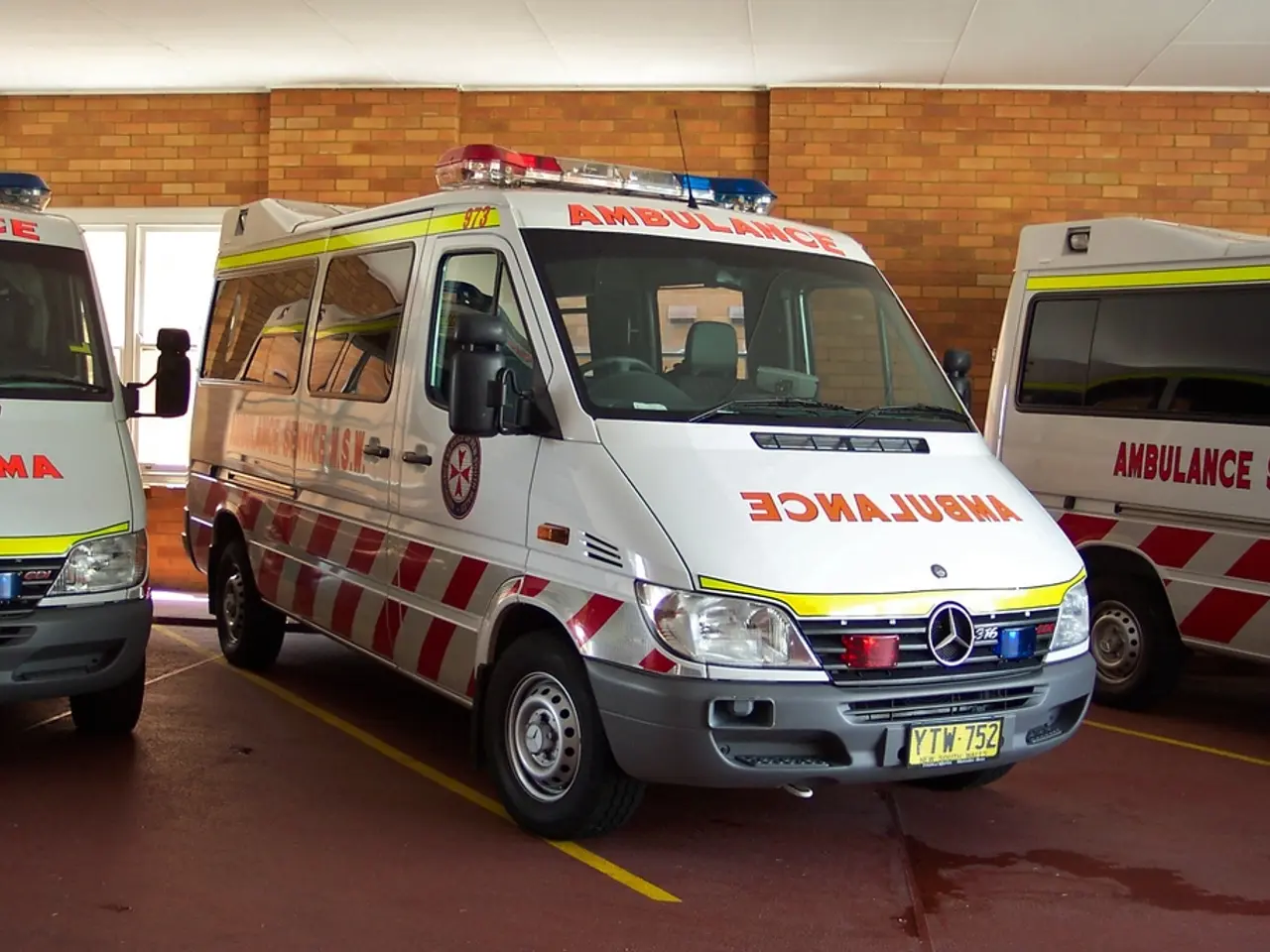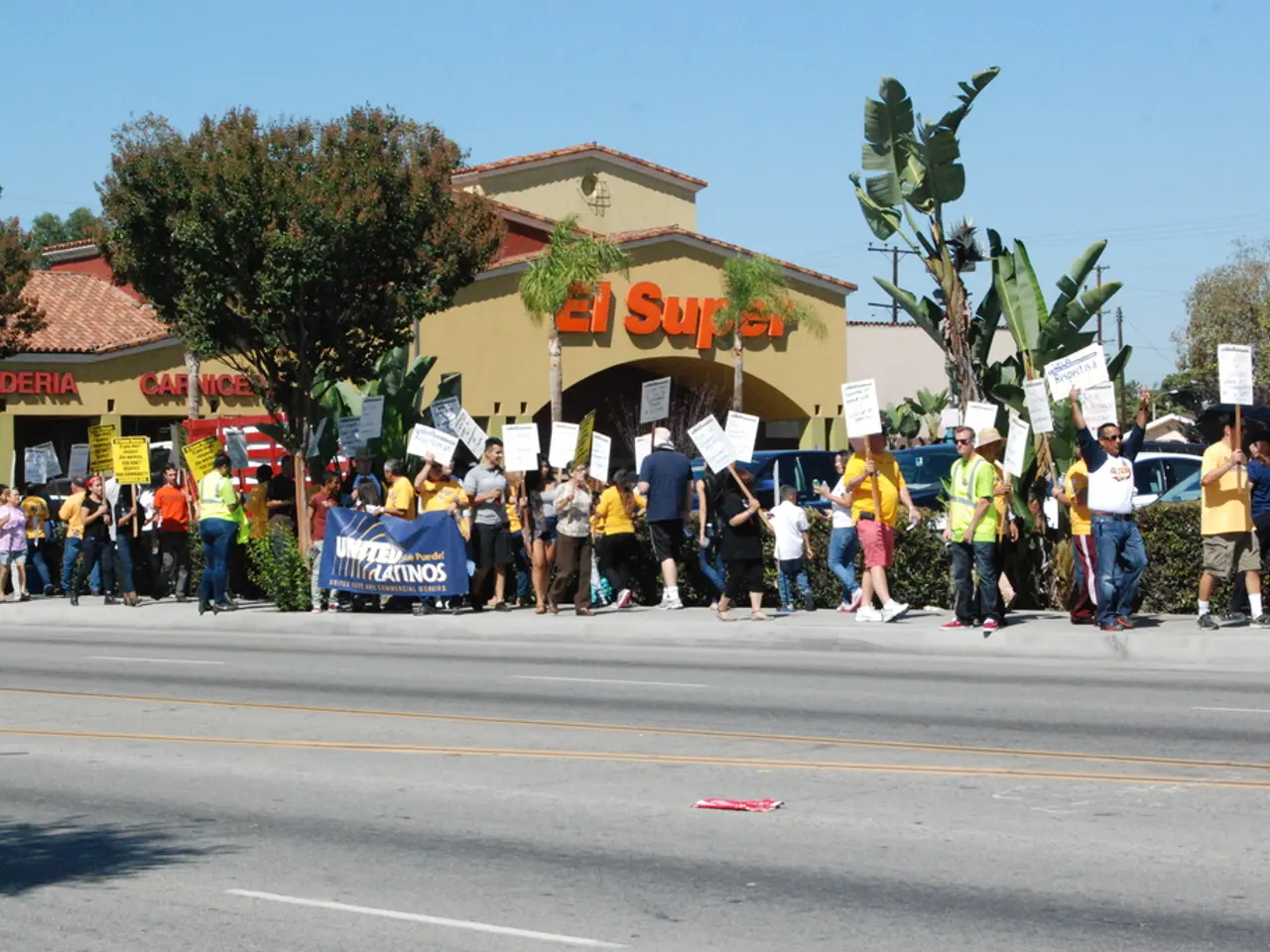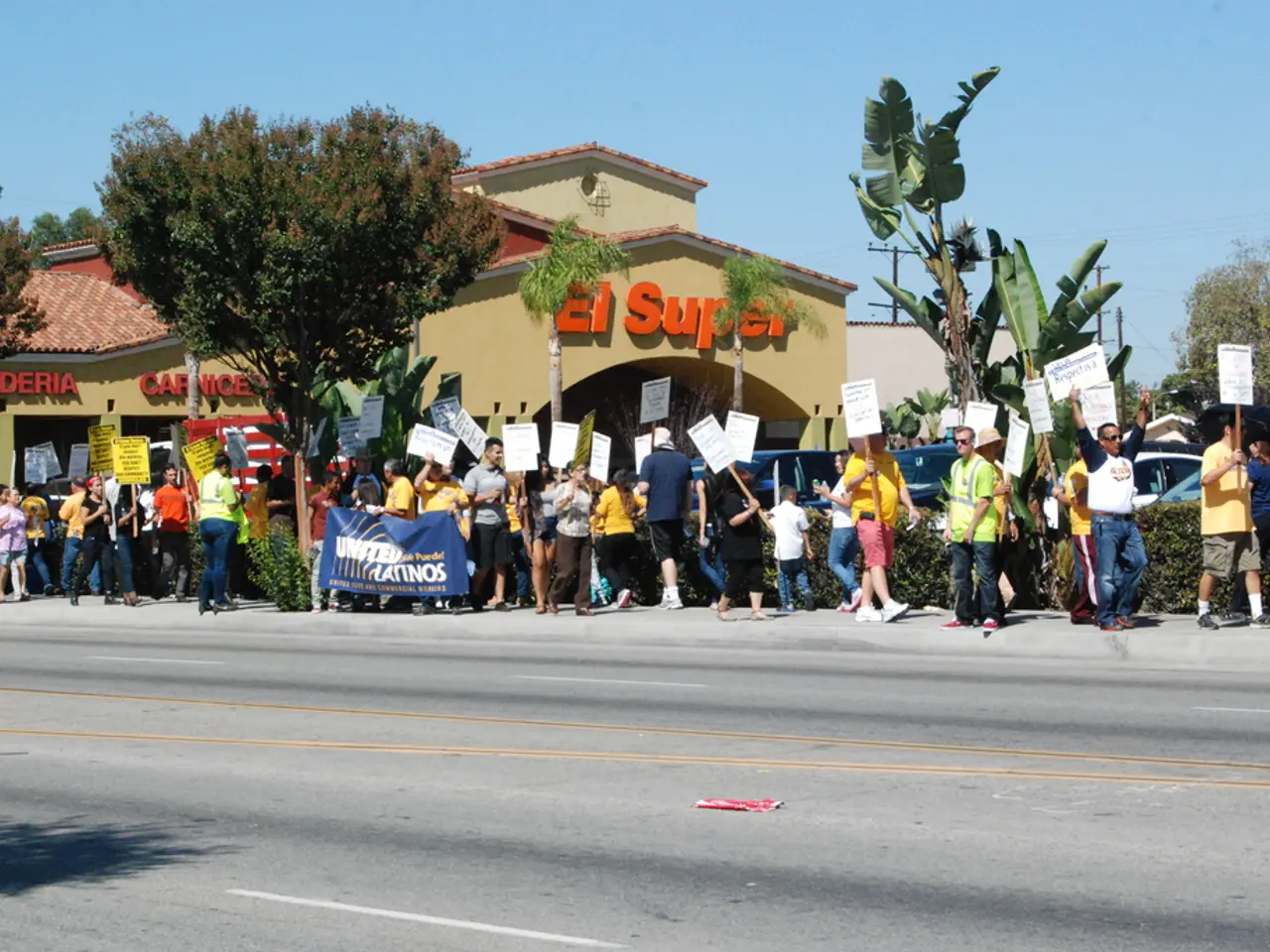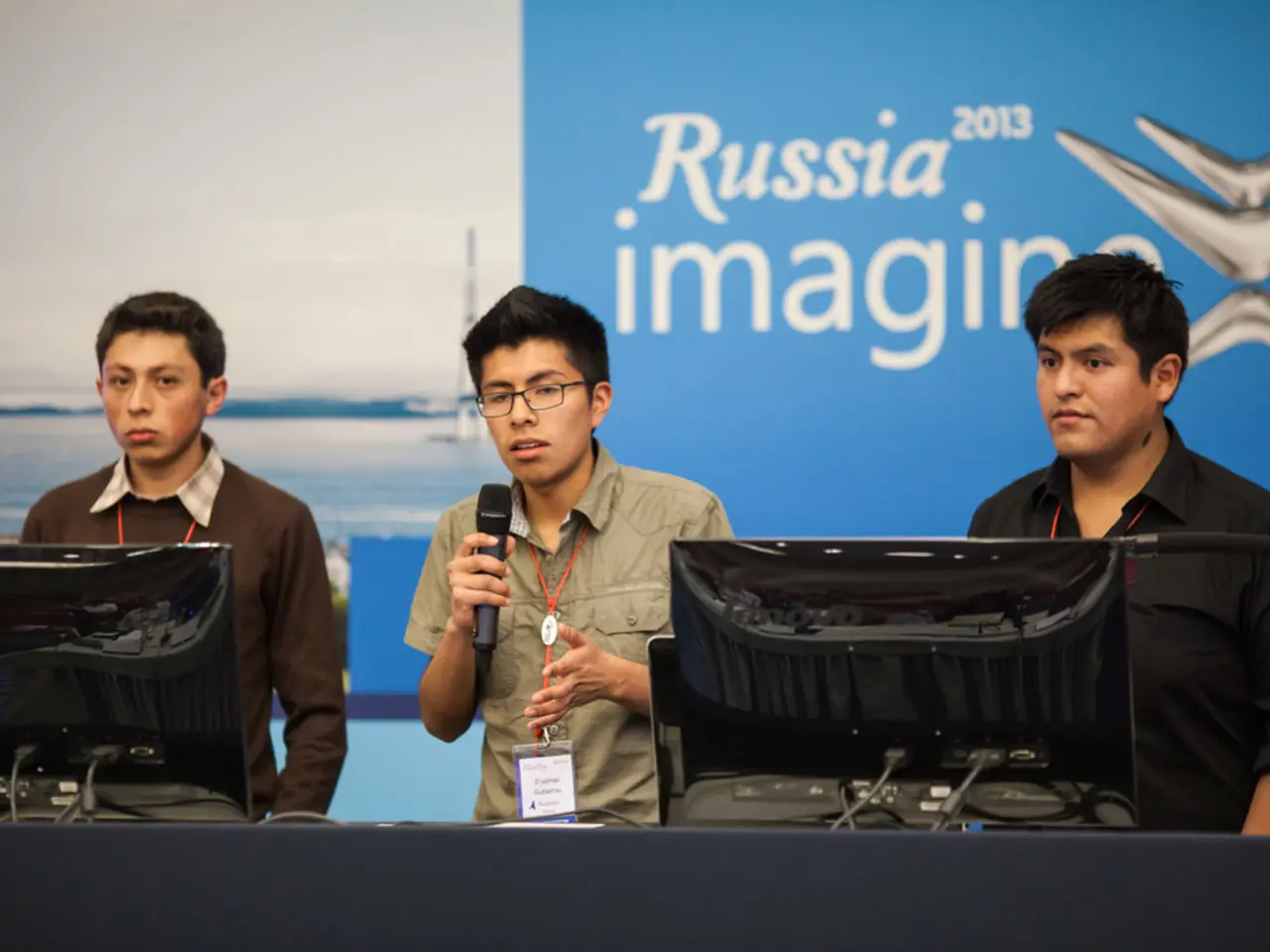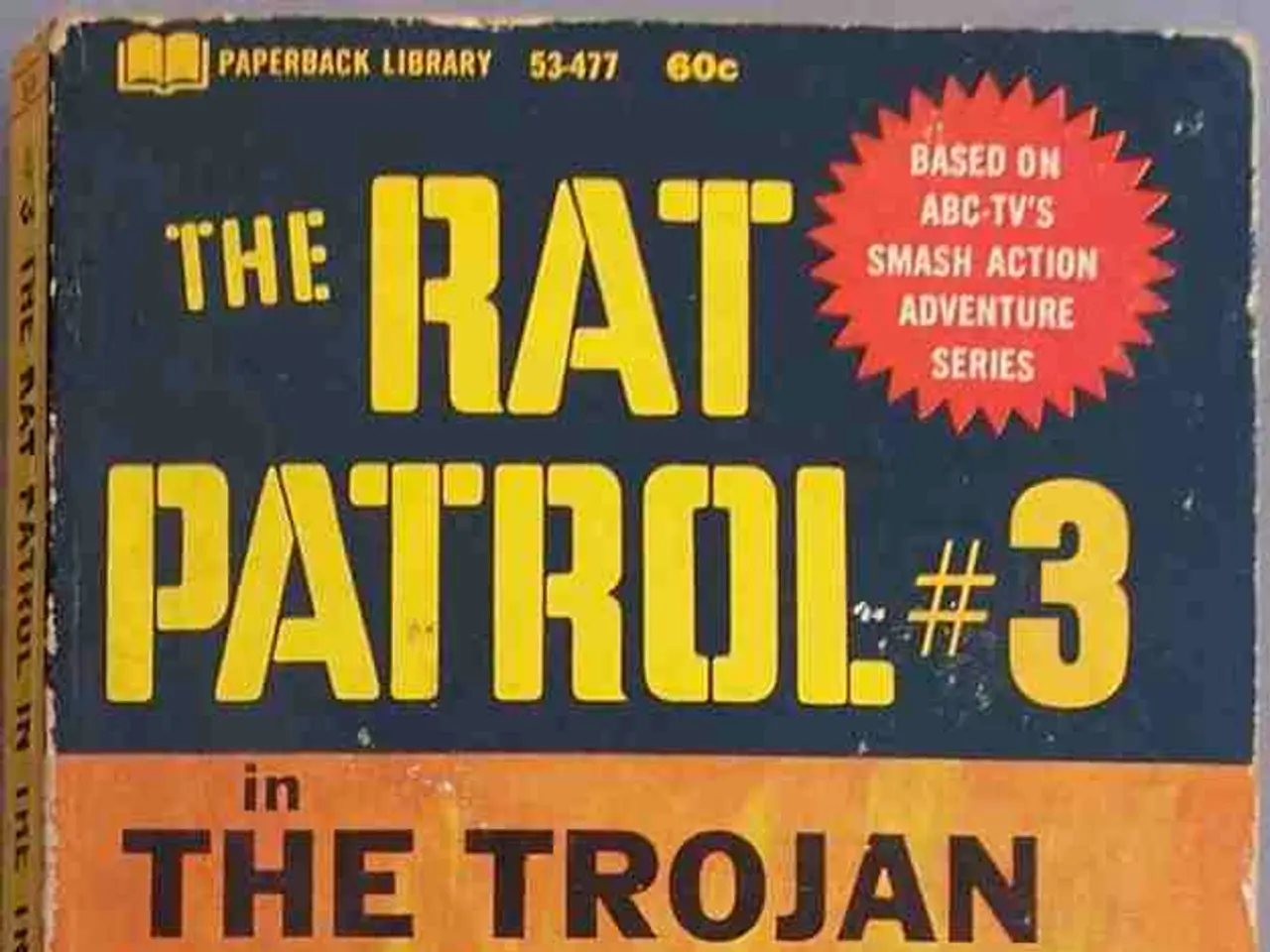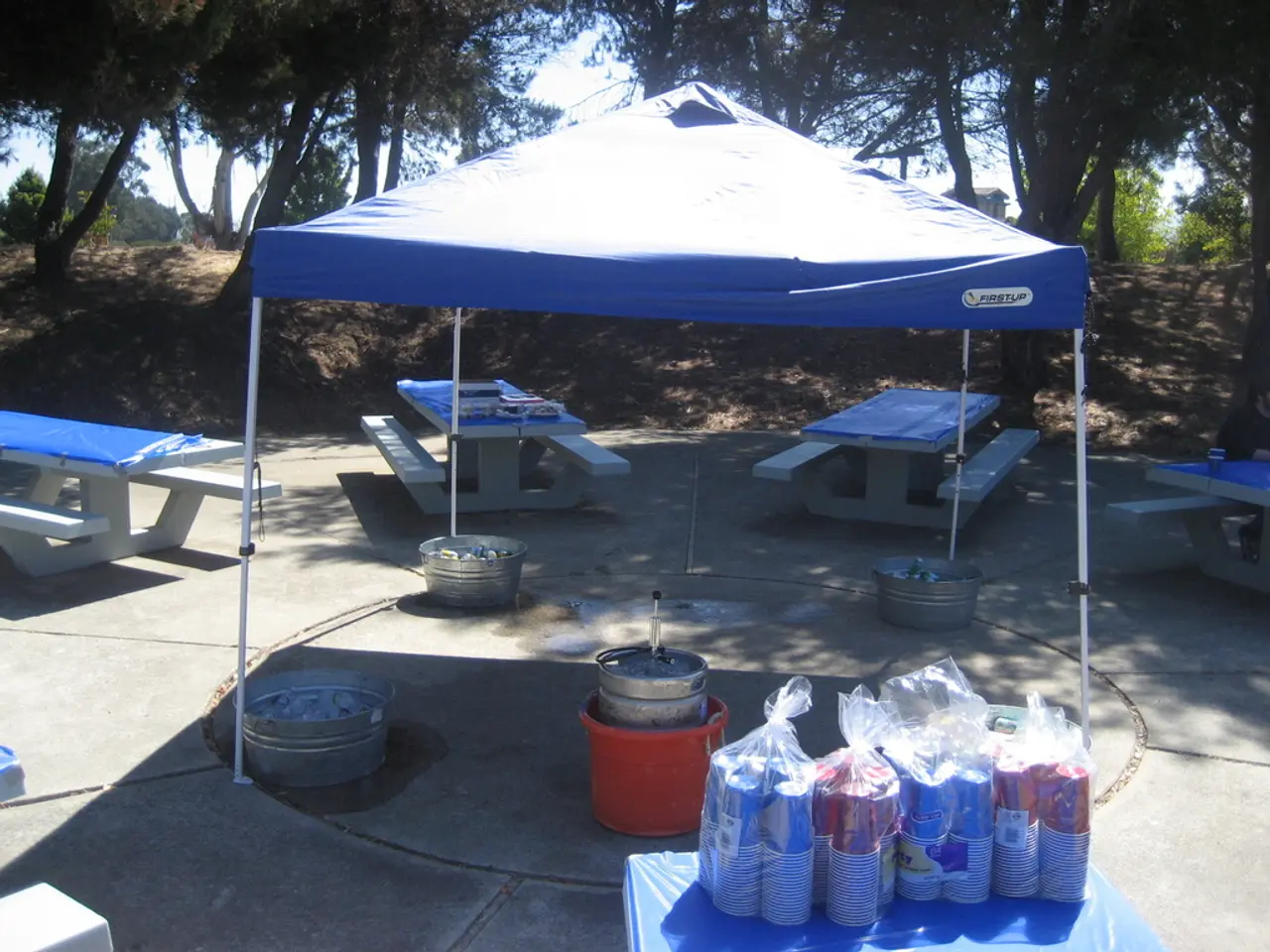US diplomat Witkoff tours controversial United Nations-labeled unsafe Gaza humanitarian mission
The Gaza Humanitarian Foundation (GHF), a joint U.S.-Israeli initiative, has taken over the distribution of humanitarian aid in Gaza since May 2025, replacing the United Nations' decades-old system amid an 11-week Israeli blockade[1][2]. The GHF claims to have delivered 100 million meals to those in need, but the operation has been met with controversy and criticism.
The GHF operates four distribution hubs in Israeli-secured areas, primarily handing out food boxes designed to feed around 5.5 people for 3.5 days[2]. However, these boxes lack critical nutrients and essentials such as bottled water, cooking fuel, medicines, and baby food, raising concerns about their adequacy amid Gaza’s ongoing water crisis and fuel shortages[2].
The change from the UN’s extensive aid network to the GHF’s more limited, militarily controlled hubs has upended aid access, reportedly making Palestinians’ lives more perilous. There have been numerous reports of lethal force used by Israeli soldiers and private security contractors employed by GHF against Palestinians seeking aid, resulting in nearly 700 deaths around GHF sites between late May and mid-July 2025[1].
The United Nations has refused to cooperate with GHF, citing concerns over the new aid distribution scheme’s safety and impartiality[1]. Critics argue the GHF approach marginalizes vulnerable populations and undermines humanitarian principles by concentrating aid distribution in militarized zones[3].
U.S. lawmakers, primarily Democrats, have pressed for greater accountability regarding GHF’s operations and the reasoning behind replacing UN efforts, while Republicans have largely closed ranks with the White House against congressional scrutiny[1]. Humanitarian organizations warn the GHF program is insufficient to meet Gaza's critical needs, noting it excludes essential aid like water, sanitation, shelter, and healthcare[3][4].
Israel has begun allowing food air drops this week, but U.N. agencies consider these a poor alternative to letting in more trucks. The Israeli military has acknowledged that its forces have killed some Palestinians seeking aid and has given its troops new orders to improve their response[1].
Steve Witkoff, President Donald Trump's Middle East envoy, visited Gaza on Friday, marking the first high-profile U.S. official visit since the war began. Witkoff's visit to Gaza on Saturday was aimed at understanding the humanitarian situation and crafting a plan to deliver food and medical aid[5].
The visit took place a day after Witkoff met with Israeli Prime Minister Benjamin Netanyahu. Ceasefire talks in Qatar ended last week in deadlock. Israel has announced steps to let in more aid, including pausing fighting for part of the day in some areas and announcing protected routes for aid convoys[6].
However, the conflict in Gaza continues, with at least 12 other Palestinians being killed in air strikes across the Gaza Strip on Friday, according to medics. The Israeli military did not immediately comment[7].
References:
- Al Jazeera
- The New York Times
- Human Rights Watch
- Oxfam
- Reuters
- BBC News
- Associated Press
- Amidst the ongoing controversy surrounding the Gaza Humanitarian Foundation's (GHF) operations, reports of lethal force, criticism over safety and impartiality, and concerns about the adequacy of aid packages, the distribution of general news, politics, crime, and justice updates in Gaza have significantly decreased.
- In the realm of sports and sports betting, the violence in Gaza has caused a general lack of interest and engagement, with major sports events either being postponed or moved elsewhere due to safety concerns.
- As accidents and fuel shortages continue to exacerbate the ongoing crisis in Gaza, various humanitarian organizations and agencies are advocating for a return to the United Nations' aid distribution system to ensure that critical needs such as water, sanitation, shelter, and healthcare are met.
